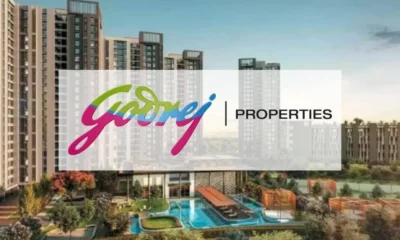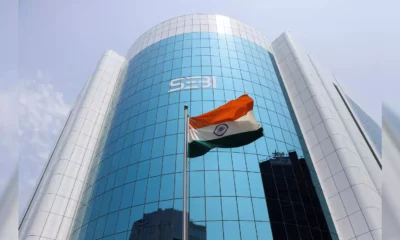News
How Technology Will Serve as a Growth Catalyst in the Fractional Space


By: Ankush Ahuja, CBO, Chief Business Officer, 360 FRxnl


The Indian fractional ownership market is worth Rs 4,000 crores in 2023, growing at a CAGR of 27.7% over the past 4 years. Despite the scorching pace with which the segment is moving ahead, the Indian fractional segment is still in its nascent phase, when compared to the global market which is pegged at Rs 39,000 crores (USD 5.4 Billion) and is set to reach Rs 65,000 (USD 8.9 Billion) crores by 2026.
The concept of fractional property was introduced in the USA in the 90s and thereafter it moved to Europe becoming a popular investment practice in the UK, Italy, Spain. (One of the reasons fractional became popular in Southern Europe was because already timesharing was in practice there. In timesharing, the home or resort owner sells the license to multiple investors to use their property. It is noteworthy that in timeshares there is no actual transfer of ownership, unlike fractional property investments.)
Recent years have seen its popularity growing like wildfire in the Asia Pacific, as increasingly investors from Singapore, Hong Kong, and Australia are pivoting to fractional assets, which gives them a chance to invest in a high-ticket investment.
Fostering Equitable Opportunities
The fractional ownership market in India is set to thrive and it will reshape how CRE investments will evolve. Hitherto, the market was run by HNIs and institutional investors but with the advent of fractional property platforms, increasingly now retail and middle-income buyers can now foray into the space as the barrier to entry is low. Even someone with a modest investment of Rs 10 lacs can partially own a high-value commercial asset and make greater rental and IRR yields.
The scope of fractional ownership is not just limited to Grade-A office assets but across a wide range of shareable assets such as warehouses, resorts, rental villas, industrial parks, shopping malls, co-working spaces, and much more. In fact, one can simultaneously invest in multiple properties cutting across geographies and asset types, thereby diversifying their investment.
Another benefit of fractional investment is that it will make many real estate properties more marketable. Though the hangover from the pandemic has dissipated and markets have gradually recovered, liquidity woes still persist. In such a situation, the fractional investment will unlock new investment streams and bridge funding gaps in the market.
Technology As A Galvanizing Agent in Fractional Asset Growth
Technology will be a key growth enabler in the ongoing transformation. It will play an instrumental role in creating a full-stack platform to ensure seamless investment and transaction of fractional properties.
Backed by strong tech-enabled UIs, these new fractional platforms can show multiple properties simultaneously and help investors evaluate and make investments. Gone are the days when property investment would need weeks or even months of site visits and evaluation before zeroing down on final investment. The new-age tech platforms will make property buying as convenient and seamless as financial markets by simplifying the overall processes.
The aid of immersive technologies such as AR and VR will further aid in digitally viewing the property without any site visit. Meanwhile, with e-KYC and digital signature, the transaction will also be smooth & transparent.
The full-stack platforms will also leverage the power of data science and predictive analytics to offer actionable and transparent insights to investors. It will refurbish a lot of valuable information & data on the future of demand, projected revenue, and quality of the projects, thereby rationalizing the overall decision-making process.
Although still in its initial phases, blockchain can further disrupt the fractional space with an expected spur in adoption. Through the tokenization of assets, blockchain will provide a fully secured platform for virtual transactions of properties. Through technology-managed smart contracts, the overall transaction can simply be done with a few clicks and this will increase the overall efficiency manifold.
-



 News3 weeks ago
News3 weeks agoGodrej Properties Sells Rs 3k cr+ Homes of Godrej Zenith, Gurugram, within 3 days
-



 News4 weeks ago
News4 weeks agoRBI’s Status Quo on Key Policy Rates to Help Maintain the Real Estate Growth Momentum, Say Industry Stalwarts
-



 News2 weeks ago
News2 weeks agoNoida’s High-Rise Societies Face Multiple Challenges Despite Rapid Urban Growth
-



 News2 weeks ago
News2 weeks agoOlive Announces Dhruv Kalro as Co-Founder
-



 News3 weeks ago
News3 weeks agoGodrej Properties Sells 5000+ Homes of Rs 9.5 cr in Q4FY24, Bookings up 84% YoY
-



 News3 weeks ago
News3 weeks agoVestian: Domestic Investors Dominate Institutional Investments in Jan-Mar’24
-

 News2 weeks ago
News2 weeks agoIndia to become the fastest-growing silver economy, housing up to 17% of the world’s elderly population by 2050: CBRE Report
-



 News3 weeks ago
News3 weeks agoHRERA Gurugram Rejects Godrej Properties’ Project Extension Application, Account Frozen For Prolonged Non-compliances


















